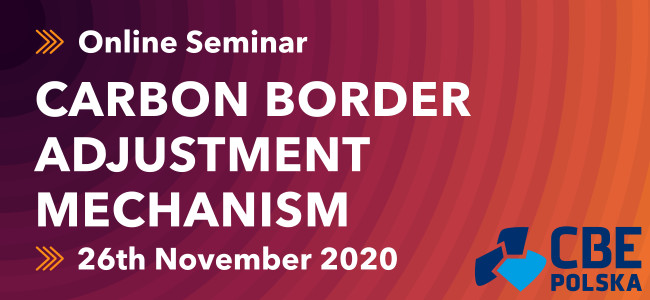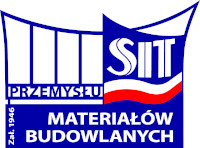| Article Index |
|---|
| Start |
| Agenda |
| Speakers |
| In cooperation with |
| Registration |


Dear Sir/Madam,
The European Commission has launched consultations on the adoption of a new customs duty as part of the Carbon Border Adjustment Mechanism (CBAM). This will be a charge imposed on imported goods the production of which results in carbon dioxide emissions. A specific mechanism for adjusting border prices taking into account CO2 emissions. It should be defined in such a way as to offset the costs of CO2 emissions incurred by producers in different regions of the world. The rate should depend on the emissivity of the imported goods manufacture and the difference between the EU emission allowance price (EU ETS price) and the possible cost of emissions incurred in the exporting country.
The CBAM is also designed to align opportunities with domestic producers of the same goods, who pay for CO2 emitted thereby. In the future, it may replace but not complement current policies to prevent emission leakage (i.e. distribution of free allowances, and discounts on energy costs for energy-intensive industries).
The first impact assessment of the introduction of the regulations has already been prepared in Poland by CAKE (Center for Climate and Energy Analyses), which operates at the National Center for Emissions Management (KOBiZE), which is a part of the Institute of Environmental Protection – National Research Institute (IOŚ -PIB).
In its analysis, CAKE assumed that the tax should be applied to the import from sectors with high energy intensity and production emissions, as indicated in the list of sectors at risk of carbon leakage. These sectors have about 48% share in emissions covered by the CO2 EU ETS (EU Emissions Trading System) and a significant share in trade - 22% for imports and 32% for exports.
Due to the doubts in the regulatory environment, we present you with an online Seminar "Carbon Border Adjustment Mechanism - New Regulations” to be held on November 26, 2020.
Key issues discussed during the seminar:
- Assumptions of the new CBAM
- Current stage of implementation of the new regulations
- The potential of the CBAM as an important pillar of the European climate policy
- When can a new instrument be adopted?
- What consequences would the introduction of emission border tax entail?
- What sectors and manufacturers are those most affected by the introduction of the CBAM?
- Feasibility of the proposed scheme and possible alternatives
- CBAM and modification of the EU ETS
- Sectors with high energy intensity and production emission,
- Entities subject to obligations under the EU ETS,
- Representatives of public sector administration and units,
- Industry associations and chambers of commerce,
The sectors most exposed to the consequences of the regulation introduction are::
The meeting will be organized online - in real time
Required equipment:- Refining of mineral oils
- Production of coke
- Ignition or sintering of metal ores, including sulfide ores
- Production of pig iron or steel (primary and secondary melting), including solid casting, with a capacity exceeding 2.5 Mg per hour 2)
- Production or treatment of ferrous metals (including ferrous alloys) in which combustion units with a total nominal thermal power exceeding 20 MW3 are used
- Production of primary aluminum
- Production of secondary aluminum in which combustion units with a total nominal thermal power exceeding 20 MW are used
- Production or treatment of non-ferrous metals, including production of alloys, refining, founding, etc., in which combustion units with a total nominal thermal power (including fuel used as reducing agents) exceeding 20 MW are used
- Production of cement clinker in rotary kilns with production capacity exceeding 500 Mg per day or other kilns with production capacity exceeding 50 Mg per day
- Production of lime or calcination of dolomite or magnesite in rotary kilns or other kilns with a production capacity exceeding 50 Mg per day
- Drying or calcination of gypsum or production of gypsum boards and other gypsum products if combustion plants with a total nominal thermal power exceeding 20 MW are used
- Manufacture of glass, including fiberglass, with a melting capacity exceeding 20 Mg per day
- Manufacture of ceramic products by burning, with a capacity exceeding 75 Mg per day 4)
- Manufacture of mineral wool insulation materials using glass, rock raw materials or slag with a production capacity exceeding 20 Mg per day
- Production of wood pulp or other fibrous materials
- Production of paper or paperboard with a capacity exceeding 20 Mg per day
- Production of soot, including carbonization of organic substances such as mineral oils, tar, cracking and distillation residues, where combustion units with a total nominal thermal power exceeding 20 MW are used
- Production of nitric acid
- Production of adipic acid
- Production of glyoxal and glyoxylic acid
- Production of ammonia
- Production of organic chemicals in bulk by cracking, reforming, partial or complete oxidation, or by similar processes, with a production capacity exceeding 100 Mg per day
- Production of hydrogen (H2) and gas for synthesis by reforming or partial oxidation, with a production capacity exceeding 25 Mg per day
- Production of sodium carbonate (Na2CO3) and sodium bicarbonate (NaHCO3)
The meeting will be organized online - in real time
- during the meeting you will see both the presentation and the speaker,
- the materials on the basis of which the speaker makes the presentation can be downloaded in the event panel after entering the virtual room,
- you will be able to ask questions directly through the integrated chat mechanism,
- before the event you will receive a guide letter from us, including a link that will enable you to participate in the seminar,
- 30 minutes before the official start of the meeting, we will open the “virtual training room”. During this time, we are at your disposal to check the connection.
- a computer with stable Internet connection,
- Web browser (latest version of Google Chrome, Mozilla Firefox, Safari, Edge or Opera)
















